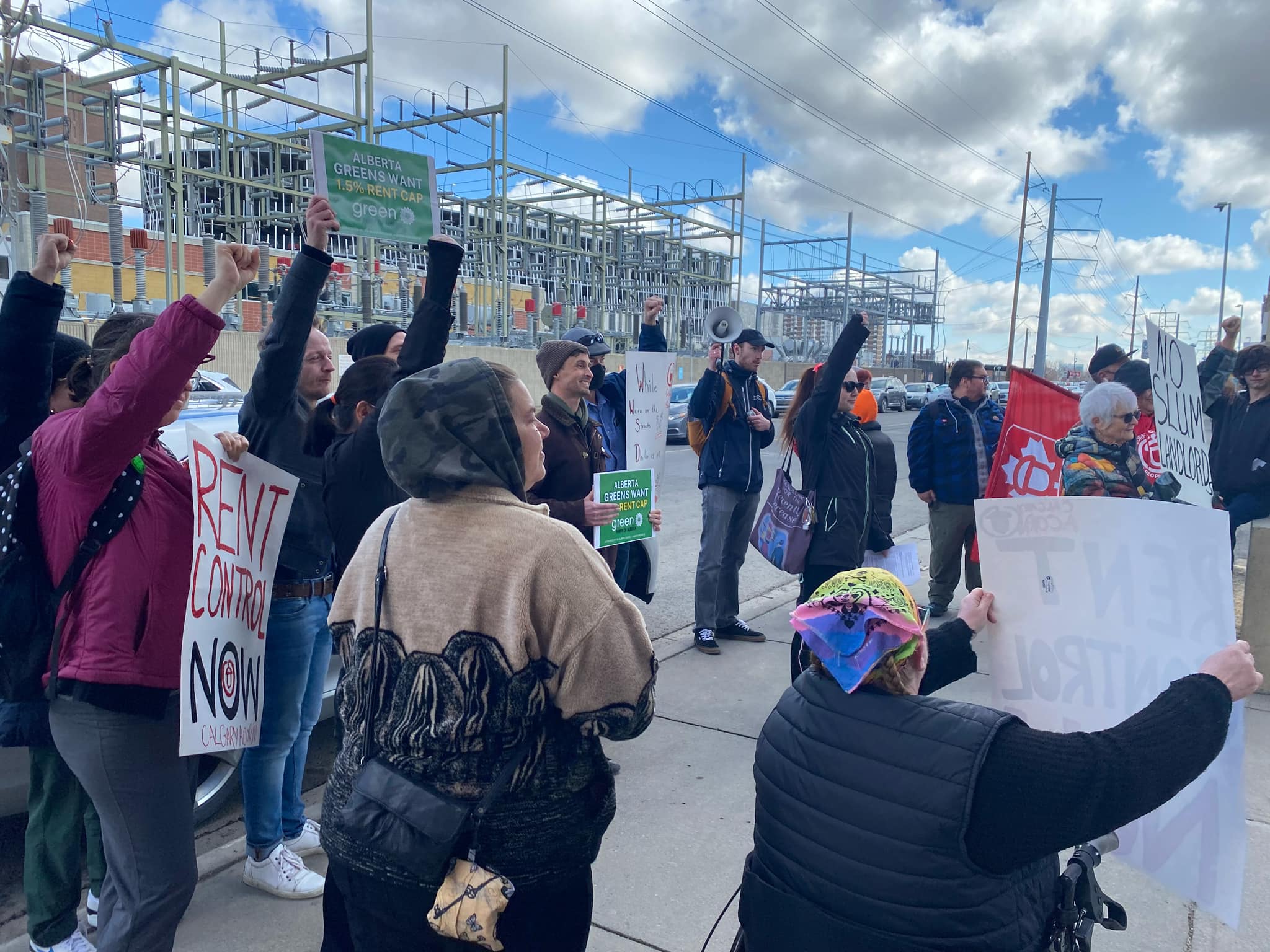Opinion Piece by ACORN leader Marcia Bryan for the Hill Times: Can we save our affordable housing before it’s too late?
Posted April 27, 2023
On one hand, inadequate rent control across provinces is leading to high rents and tenant exploitation. On the other hand, big corporate landlords are taking away every affordable housing unit that’s left.
As parliamentarians move forward with approving Budget 2023, one issue that was conspicuously absent from the 255-page document is adequate measures to address the housing crisis. While on the one hand, complete lack or inadequate rent control across the provinces is leading to skyrocketing rents and tenant exploitation. On the other hand, big corporate landlords are taking away every affordable housing unit that’s left. The ‘financialization of housing’ is a term used to describe the treatment of housing as a commodity, rather than a human right and a social good for people and communities.
Typically, financialized landlords are Real Estate Investment Trusts (REITs), private equity firms such as Starlight Investments, pension funds such as the Public Sector Pension Fund, hedge funds etc., but also certain big-medium size firms such as Medallion, Pulis Investments and others. Research by Martine August shows that financialization of rental housing has expanded dramatically in Canada since the late 1990s, with financial firms holding 20 to 30 per cent of the country’s purpose-built rental housing stock today. In fact, as researchers argue, we are losing affordable homes too fast. Estimates show that between 2011-2021, over 550,000 units of housing at rents of $750/month or less have been lost. Carleton University professor Steve Pomeroy suggests that each year in Canada, 64,000 affordable units are lost. That means for every one built, four are lost.
The National Housing Strategy (NHS)—the key vehicle designed to create affordable housing after the recognition of housing as a human right—only has a target to produce up to 160,000 new housing units.
Not only are these numbers dramatically insufficient to meet demand, but the over 118,000 new housing units built to date through the NHS are mostly unaffordable. The NHS has failed to support tenants in core housing need; 27 per cent of renters are in core housing need, 91 per cent of whom are facing affordability issues as per Canada Mortgage and Housing Corporation (CMHC) data.
There are two specific issues with financialized landlords that are especially troubling and should force our policy makers to act. First, they often hide themselves behind a property management firm or a numbered company, meaning tenants can’t know exactly who is their landlord. In a 2022 survey by ACORN Canada of more than 600 tenants, for 36 per cent of respondents, landlord’s information could not be located.
Second, the business model of financialization is hugely reliant on tenant turnover. After acquiring affordable apartment buildings that were built in 1960s or 1970s, these landlords neglected repairs and maintenance, allowing the buildings to fall into a state of disrepair so they could push out long-term tenants once they needed to either renovate or demolish the buildings. This systematically made housing that was built for low- and moderate-income people no longer affordable to them.
Again, ACORN’s research shows that tenants in financialized housing are more likely to live with pests, not get repair work done, and face unfair rent increases. Tenants, especially those with longer tenure, suffer most.
I have lived in a unit owned by Starlight Investments—one of the largest owners of apartment buildings in Canada—for almost 40 years. Tenants in the building deal with rodents, lack of repair and maintenance, and constant issues with elevators and more. Last summer, the 14-storey apartment only had one functioning elevator!
ACORN Canada wants the federal government to stop financialized landlords from acquiring residential apartments, or limit how many they can acquire. With soaring rents, the city of Berlin held a radical referendum to expropriate the apartments of private landlords holding more than 3,000 units, and to incorporate them into the city’s social housing stock.
The federal government should also mandate transparency in ownership so that tenants know who their landlords are.
Further, the federal government needs to act on its commitment of taxing REITs, something for which ACORN has rallied for years. If REITs were taxed at the basic corporate income tax rate of 38 per cent, the Parliamentary Budget Officer suggests the additional revenues would be $285.8-million over 2023-2027.
ACORN Canada also wants the federal government agency, CMHC, to launch an acquisition fund that would enable non-profit, co-op, and land trust organizations to purchase at-risk rental buildings when they come onto the market.
Lastly, the federal government can demonstrate leadership by mandating rent control—a key policy tool that will disincentivize financialized landlords from evicting long-term tenants, and encourage them to maintain their buildings.
ACORN’s survey on the financialization of housing speaks volumes about what’s wrong with the housing system in Canada. A common story that binds the experiences of tenants is that landlords just don’t care, it’s an unfair fight.
But will the federal government care?
****
Authored by Marcia Bryan is a leader with ACORN Canada, an independent, national organization of low- and moderate- income people with over 160,000 members in 24 neighbourhood chapters across 10 cities.
The original article can be accessed here

